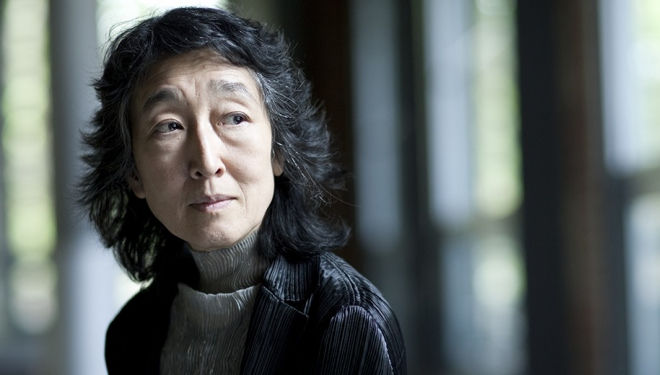
Try and imagine the music of Wolfgang
Amadeus Mozart, and the first thing that comes to your head is likely to be
colourful and joyful. Over the past two and a half centuries, the greatest
classical composer has become associated with lightness, playfulness and
stateliness. Melancholy self-reflection? That’s the domain of his romantic
successors.
Of course, this is only a fragment of the picture. Mozart’s compositions are as varied as they are numerous. On the anniversary of his birthday, the esteemed conductor Sir John Eliot Gardiner (Music in the Castle of Heaven) will visit Belgravia's Cadogan Hall with two of his distinguished ensembles, the Monteverdi Choir (Orfeo) and the English Baroque Soloists (Messiah). Together under a single baton, they will present two of Mozart’s most emotionally intense masterpieces – the Symphony No. 40 (1788) and the unfinished Requiem (1791). The final night of their European tour, it is sure to see the musicians at their luminous best.
Opening with an instantly recognisable flourish of strings, the symphony is a profound piece of emotional expression that somehow manages to feel both personal and universal. Despite its downcast nature – it is one of Mozart’s only two symphonies to be written in a minor key – its first movement boasts a startling sense of propulsion, as if trying to crack a smile in face of tragedy. The second movement continues with wistfulness, while the third feels like dancing weighted with lead. And then there’s the astonishing finale, which – for a moment at least – slips into atonality.
The Requiem is a much more mysterious proposition. One of the all-time great mass settings, its was anonymously commissioned by an eccentric count. The tight orchestration of the symphony is replaced by something more open here, while retaining a direct emotional heft. Weaving around it, the choir and soloists create music alternatively reassuring, terrifying and triumphant. As a celebration of Mozart’s unique genius, it should be phenomenal.
Of course, this is only a fragment of the picture. Mozart’s compositions are as varied as they are numerous. On the anniversary of his birthday, the esteemed conductor Sir John Eliot Gardiner (Music in the Castle of Heaven) will visit Belgravia's Cadogan Hall with two of his distinguished ensembles, the Monteverdi Choir (Orfeo) and the English Baroque Soloists (Messiah). Together under a single baton, they will present two of Mozart’s most emotionally intense masterpieces – the Symphony No. 40 (1788) and the unfinished Requiem (1791). The final night of their European tour, it is sure to see the musicians at their luminous best.
Opening with an instantly recognisable flourish of strings, the symphony is a profound piece of emotional expression that somehow manages to feel both personal and universal. Despite its downcast nature – it is one of Mozart’s only two symphonies to be written in a minor key – its first movement boasts a startling sense of propulsion, as if trying to crack a smile in face of tragedy. The second movement continues with wistfulness, while the third feels like dancing weighted with lead. And then there’s the astonishing finale, which – for a moment at least – slips into atonality.
The Requiem is a much more mysterious proposition. One of the all-time great mass settings, its was anonymously commissioned by an eccentric count. The tight orchestration of the symphony is replaced by something more open here, while retaining a direct emotional heft. Weaving around it, the choir and soloists create music alternatively reassuring, terrifying and triumphant. As a celebration of Mozart’s unique genius, it should be phenomenal.
| What | Mozart Anniversary Concert, Cadogan Hall |
| Where | Cadogan Hall, 5 Sloane Terrace, London , SW1X 9DQ | MAP |
| Nearest tube | Sloane Square (underground) |
| When |
On 27 Jan 16, 7:30 PM – 9:30 PM |
| Price | £15-60 |
| Website | Click here to book via Cadogan Hall |




